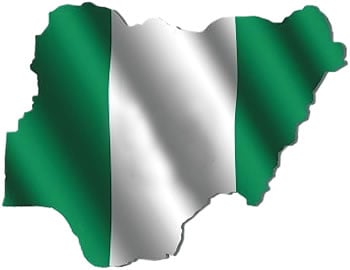First of all, in the first republic, Nigeria had three to four regions which with the Federal Government made a total of five centres of government. Now with 36 states, the federal capital territory and the Federal Government, there are 38 administrations sharing the resources available, without a corresponding increase in the sources of revenue and productivity. There is no way this can be sufficient and satisfactory. This explains why two thirds of the states cannot fulfil their obligations to see to the security and welfare of their citizens. The solution to these is the introduction of fiscal federalism where the federating units will have control of their resources and explore them to their fullest advantage instead of them going cap in hand to Abuja to collect monthly allocations from dwindling oil revenue. We also need to have regional autonomy for the units to develop at their own pace and manage their resources as they think best, with state police for maximum security. Therefore, creating more states is not the answer as that will compound the problem.
We must reduce the size and cost of governance whereby more than 75 per cent of our income is spent on the recurrent expenditure of paying salaries and allowances, to the detriment of capital projects which will provide the basic necessities of life for the people – houses, roads, water, electricity, schools, hospitals, employment, etc. If this is done, people will not need to look for money, by all means and at all costs, to provide these for themselves. It will reduce the bitterness engendered when politicians struggle for power at the centre and the corruption it breeds. But most importantly there should be equity, fairness and justice. Political equilibrium between the North and the South is basic to these so that no section takes undue advantage of size, more states and imagined greater population. That is why I strongly support the adoption of the six geo-political zones as the federating units with three each in the north and the south. To cater for more minorities, we may consider the 12 state structure of the Gowon era.
This is the method to remove the feeling of undue advantage by one section of the country over the other. The other point to note to avoid a feeling of being surchanged by any section is to amend the constitution to provide for two Vice Presidents, the first one coming from the same area as the President. If therefore, for any reason the President can no longer continue in office, the rest of his term or terms will be left for the unit to produce his successor. This will save the kind of ill-feelings and disaffection which accompanied the succession of late President Umar Yar’Adua by former President Goodluck Jonathan. Some people are beginning to be jittery about the present situation whereby the Vice President is not from the same part of the country as President Muhamadu Buhari, should, God forbid, the unexpected happen.
We also need to look at our legislatures to reduce the humongous emoluments that they gulp. A way to go is the system of the Senate where each state, no matter its size, has three senators. The same method can be adopted for the House of Representatives. The Senate arrangement has worked successfully since 1999. This could be peculiar to Nigeria but it will douse the tension which attempts at accurate censuses have caused, as the states and politicians see the census, not from point of planning and development, but of material and political advantages.
The major problem is who is going to bring about the changes? The legislators will shy away from it as they may not find it easy to turn the knives against themselves. They, as the direct beneficiaries, will want to maintain the status quo.
So, what should happen? The way to bring about the needed reform is to experiment the suggestion of Senator Shehu Sanni and former NADECO Secretary, Ayo Opadokun, to convene a Sovereign National Conference of political, religious, professional bodies, civil society groups, labour unions, ethnic nationalities, cultural groups, traditional rulers, students, youth and militant stakeholders and agitators, whose decisions will be subjected to a national referendum to evolve a true people’s constitution from their deliberations and whatever they may agree on, from the 2014 Confab and other such previous documents and decisions. That is why it is necessary to look at the 2014 Confab report to see what can be useful in the over 600 resolutions which had considered the controversial points of our political, socio and economic practices. We should also look at the Pronaco document of late Chief Anthony Enahoro and co, for guidance. I consider the stand of the APC Federal Government that restructuring is not a priority as insincere and hypocritical. Buhari said the Confab report is for the archives as the ruling party did not believe or participate in it. But all the South West states the party controlled then, sent delegations to the Confab. Their delegates took part in the deliberations and in arriving at the resolutions. One of their national stalwarts Segun Osoba was a major participant at the Confab.
The 24 APC governors have also recently supported restructuring and the party had the point in its manifesto for the presidential election of 2015. So where is the consistency, the rationality or reasonableness of the APC to the Confab report? The truth is that succeeding governments are afraid of taking the plunge for fear that the unity of the country may be jeopardised. But Nigerians reserve the right to decide what form of government they want, how they should be governed and by whom. Leaders should know that those who make peaceful changes impossible make violent revolutions inevitable. If we cannot agree to live together as a country, there is nothing wrong if we agree peacefully to disagree and go our separate ways. This is better than another civil war which will be an ill wind that will not blow anyone any good.
- Dr. Olasope, a veteran broadcaster, lives in Efon Alaaye, Ekiti State.






